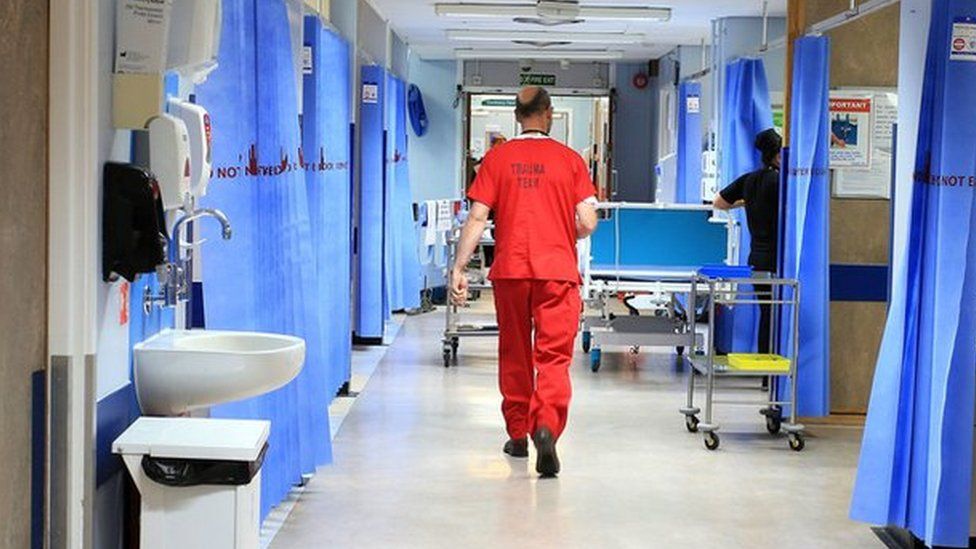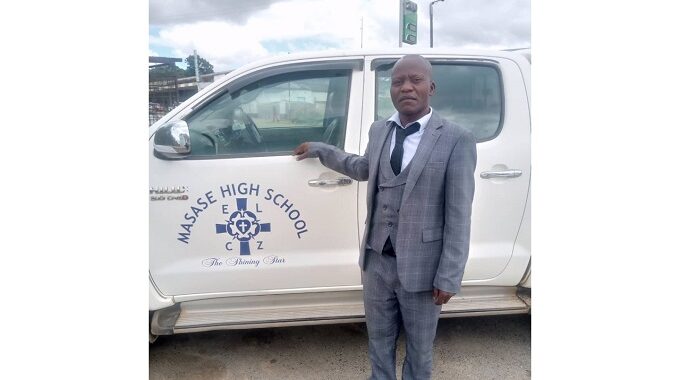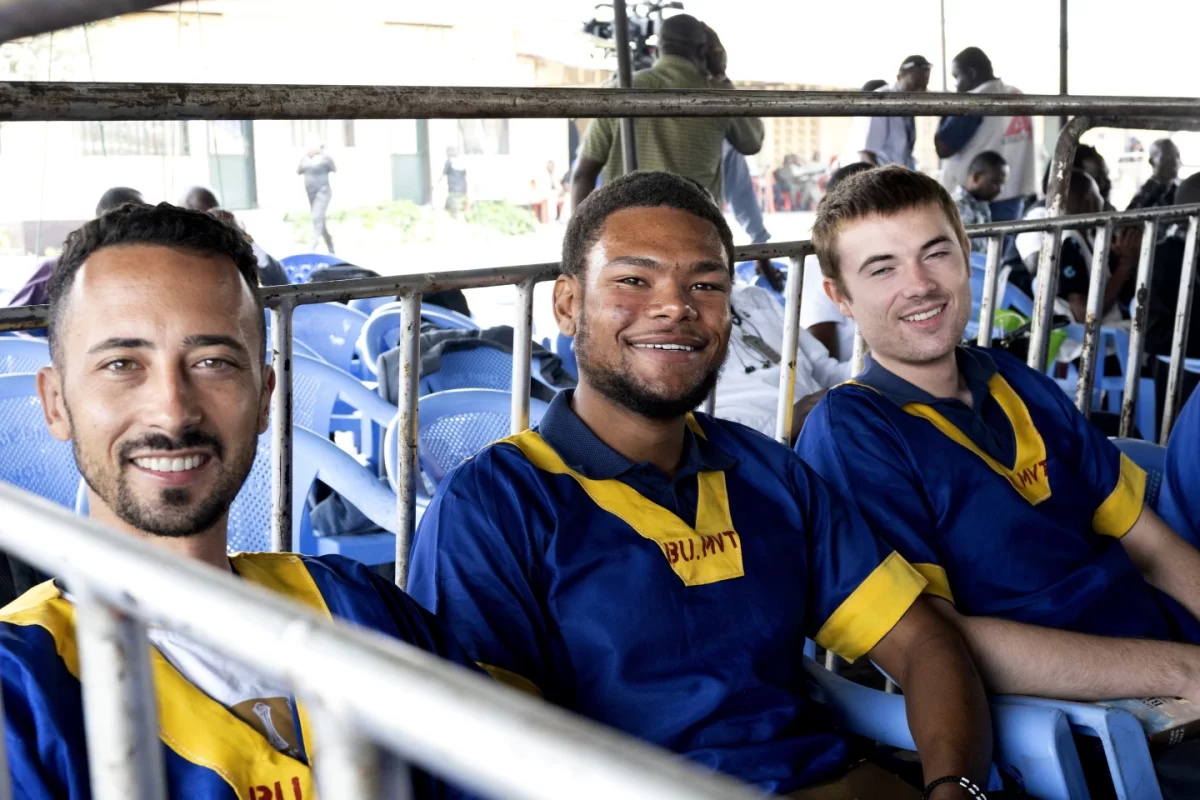HARARE – When Zimbabwean mother-of-four Eunice Sinoya enrolled in a first aid course near the capital Harare, she was lured by the college’s promise of a job in Britain’s care sector. But more than a year on, she is sitting at home with her dream in tatters, the victim of a fraud that has cost her thousands of dollars.
She is not alone. Police in Zimbabwe are investigating reports of dozens of scams that have exploited booming demand for basic healthcare qualifications, which are increasingly seen as a ticket to jobs overseas.
Sinoya, 45, said she sold family land to pay for bogus sponsorship and flights that never materialised while doing a course in Norton, 40km west of Harare.
“I was promised they’d get me a sponsor who would take me to the UK. I didn’t suspect anything. I thought it was genuine,” she told the Thomson Reuters Foundation.
Basic healthcare courses, known as nurse aide courses, have proliferated across the southern African country in recent years with local media describing them as “the new gold”.
Their popularity has been fuelled by Zimbabwe’s economic crisis coupled with high demand for health and care workers in countries like Britain, where there are massive staff shortages.
However, the scramble for nurse aide qualifications has also given con artists an opportunity to cash in.
A police source, who spoke on condition of anonymity, said some victims had been tricked into paying for bogus courses or fake certificates while others, like Sinoya, were duped into spending huge sums with false promises of jobs in Britain.
Most frauds have been reported in Harare and Bulawayo.
Nurse aide courses used to attract people with few qualifications. But students now also include lawyers, bank staff, business people, teachers and other professionals desperate to escape crippling inflation, dwindling opportunities, a rapidly depreciating currency and high unemployment.
A trainer at one school run by the Red Cross said some courses had 200 students, with numbers quadrupling in recent years.
Demand for places intensified in 2022 after Britain opened a new visa route for overseas workers to help fill more than 160,000 vacancies in the care sector after the Covid-19 pandemic and Britain’s departure from the EU.
Britain granted 21,130 Zimbabweans health and care worker visas in the year up to September 2023, up from 7,846 the preceding year and 915 the year before, according to official data.
An overseas carer in Britain earns a minimum £20,960 (R498,630) a year – a low wage given the high cost of living, but more than 10 times what many teachers in Zimbabwe earn.
Those taking nurse aide courses include some professional nurses seeking to bypass government attempts to stop them migrating.
Nurses in Zimbabwe said the government, which is worried about a medical brain drain, is blocking them from taking nursing jobs overseas by withholding documents required by employers.
“The bottlenecks are forcing nurses to opt to train as nurse aides so they can go abroad to work as carers or healthcare assistants instead,” said Simbarashe Tafirenyika, president of the Zimbabwe Urban and Rural Council Nurses Workers Union.
Nurse aide courses have long been offered by organisations like the Red Cross and St John Ambulance, but recently many small institutes have sprung up across Zimbabwe to meet rising demand. Charges range from about $100 (R1,863) to $400 (R7,451).
The college Sinoya enrolled in, Platinum Home Healthcare Services, was set up in 2018 according to its website, which features photos of smiling graduates and testimonials from past students.
“The college called it a crash programme where they would be teaching us about what is needed in the UK,” she said. “I graduated at a colourful event with other students. I was so happy. I couldn’t wait.”
The fact Platinum advertised free sponsorship had attracted many people like her, she said. Carers seeking jobs in Britain must find an employer, also known as a sponsor, before they can get a visa.
As part of the process, carers may have to pay charges to fulfil requirements for employment. Once enrolled on the course, Sinoya was asked for payments totalling $4,500 (R83,835).
These included legitimate charges for an English language test, TB test and police background check, but also payments for flights and $2,000 (R37,260) for unexplained “consultation fees”.
“I had to sell family land for $6,000 (R111,780) so I could pay the college,” Sinoya said. “I asked, ‘When am I leaving for the UK?’ But no one responded. I later learned I’d been scammed. The woman running the college was bogus and on the run for duping many people.”
Sinoya estimated dozens of classmates had been swindled and said the case had been reported to police.
A Platinum staff member, who declined to give her name, said there had been a problem with a former director, but the college did not know her whereabouts.
“I can confirm we had such an issue. She was one of our directors,” said the staff member. “She is no longer working with us.”
The staff member said the college would not refund the women as it was not responsible for their losses. She said Platinum was still running courses, but no longer offered to arrange jobs overseas.
The Thomson Reuters Foundation tried to reach the former director, but the phone number appeared out of service.
Police declined to comment on the case.
Sinoya, who used to work as a part-time domestic worker, is unemployed and has moved into a shabby rental with no electricity or water.
“I’ve had more than a year of stress trying to recover my money,” she said. “I’m renting a house that’s not suitable for kids. I’m struggling to put food on the table.”
Sinoya is not the only one ruing the day she ever set foot in the college.
















